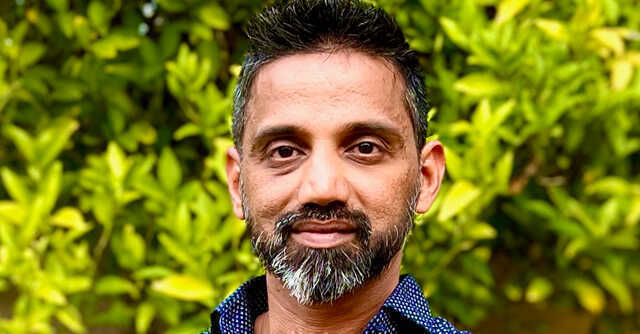
Governments can leverage Uber as a SaaS offering, says Praveen Neppalli Naga


Ride-hailing platform Uber has announced plans to add 500 employees at its technology centres in Bengaluru and Hyderabad. The company had hired 250 engineers in India in 2021 and the new hires will raise its India headcount to 1,500. All these employees will work on Uber’s global technology offerings, including important application programming interfaces (APIs), which allow third parties and governments to utilise its platform. In an interview, Praveen Neppalli Naga, vice president and head of mobility engineering at Uber discussed how the company is preparing for electric and autonomous vehicles of the future, and what its India teams will do. Edited excerpts:
People in Indian tech centres of companies usually do back-end and maintenance work; what do Uber’s India tech centres do?
I think I’ve seen that happen in other companies and I think they’re missing out. Right from the beginning, we were very clear that we will be leveraging the talent here to build our core technology. Like in Bengaluru, our teams work on the core platform that is a critical part of our regular functioning around the world, which is our API (Application Programming Interface) platform. If that doesn’t work, then Uber will not work. So, that’s just a testament to how we are operating from India. If we do global tech sites, we can actually understand and help each other. I think if you don’t do it, you’re missing out.

Are you tapping into government and state-level public data that’s being built in India right now?
Yes and no. I mean, yes, we are able to leverage this data, I think we have some partnerships with city governments. In certain cities in the US, the cities actually want to work with us to help. In these cases, we use the data to help make decisions.
Same thing in India. Wherever it’s available, we use it, and it’s an ongoing work for us. This is why we actually want to partner with the Government of Karnataka to be able to build a tech centre in one of their universities and actually partner with them very closely.

Basically, build a centre of excellence for transportation. That helps us to integrate with some of the public data to see how we can solve state-level problems in terms of traffic, usage and all that.
So in this case, the Uber platform is also going to be leveraged by a public body as well, right?
Yes. In places where we’re able to offer Uber as a software-as-a-service (SaaS) offering, they’re able to leverage. I think we have that in some places. Not in India, but other places.

The 500 engineers — Are you only looking at tech hirings in India?
These will be in different functions. We are going to hire engineers, product managers, designers, data science, programme managers, and so forth. The reason for that is we want India to build products, platforms and infrastructures. To do that, we need all these different functions. If we just hire engineers, that will not have dependencies back and forth.
How is the tech adapting to the change in mobility with electric vehicles (EVs) etc?

I think the tech has to be ready by the time this comes to scaling. We are already doing some of this. Like in the US, we have thousand-odd Tesla cars being rented through Hertz (a rental car company).
But if you take a step back, then we need to start thinking about how will this work. Let’s say you request a ride and I dispatch you a car which has only 10% battery—it makes no sense. So, we need to ingest that charging data and be able to feed that into matching algorithms, and use that to dispatch the right vehicles.
Then if a driver’s car is running low on battery, we will be able to understand where the charging stations are and route them to those stations, give that break and not have any disruptions.

These things need work and they need partnerships and work. The good news is it’s not like you’re just building it and nobody’s using it. As I said, we already have these partnerships going on in the US. We will be able to get our tech ready when and as India and other countries are also deploying it.
Are flying taxis and really futuristic means of transport still within the tech purview?
Absolutely. We are building our tech and we are already partnering with third parties, like New York Cabs, San Francisco Cabs, and Auto Cab in Europe.

That’s the tech we are building, which we will be able to expand to be able to bring in, say, autonomous cars. But we’re making sure we understand which routes those will work on. Autonomous might not work on all the roads.
Flying taxis — We’ve done Uber Choppers. We’ve already tried some of them, but the scale is not there. But we can expect those things to come in the future, and we’re making sure our tech is ready for them.
Are you considering SaaS offerings from EV firms in India?
So, when we partner, we actually open a third-party API, so that companies which own those vehicles can integrate our third party APIs, so that it can start showing up as supply for our Uber customers.
